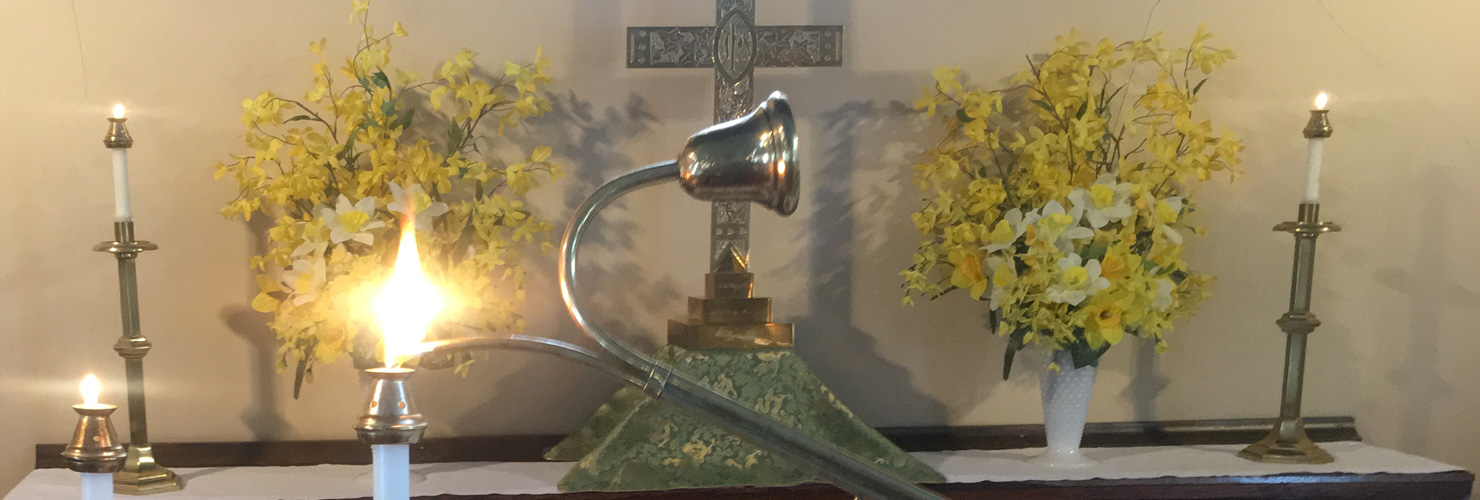“Woman, here is your son. Man, here is your mother.”
A Good Friday Sermon by Reverend Erika Hagan
April 7, 2023
Woman, here is your son. Man, here is your mother.
I worry sometimes. I worry that now, these many centuries after this Good Friday, we are too far removed from the time and society of Jesus to truly hear his words.
Here is your son. Here is your mother.
Not that we don’t understand family, or familial love, or even familial obligations. I do not like talking on the phone, but when my Mom calls, I always answer. The love I have for my sons is fierce and strong, my inner Mama Bear roars in protection of them. I hear these words and think I can connect to them – Jesus is telling these two that he loves to love one another, to take care of one another, after he is gone. That they are now family, through their mutual love and grief for him. Right?
Here is your son. Here is your mother.
We are so independent, in this time, in this place. When we hear these words – here is your son, here is your mother – we focus on the word “your.” The possessive. The ownership. The responsibility. We define ourselves, now, in 21st century America by what we choose to take on – I am a mother. These are *my* sons. We define ourselves by our jobs, our political parties, our sports teams. These are mine. I chose these things. Me. I. And if I change my mind – if I quit my job or stop watching the Yankees, those things will no longer be mine – who I am is me alone and my choices.
If I hand something to you, a responsibility, and say “this is yours” – you have a moment of decision. Do I take this? Do I take this on? Is this who I am?
Here is your son. Here is your mother.
This is actually a new thing, this way of understanding ourselves. Its roots are in the Enlightenment, its clarion call in the revolutions of the 18th century where we claimed the unalienable rights by our Creator – we claimed these rights were sent by God – to life, liberty, and the pursuit of happiness. My life. My liberty. My happiness. I wonder if what we lost, then, was the idea that our lives, our freedom, our happiness – they are indeed what God created us to have, but we were created as beings in relationship with one another.
For the 1700 years prior, from that Good Friday of Jesus on the cross until really very recently in human history, how we saw ourselves – who am I? – was who we were in community. I am my family. I am my religion. I am one of God’s people, freed from Egypt in the exodus, in covenant with God forever. These are not optional, these are not choices, these are me forever.
When Jesus says, here is your son and here is your mother, perhaps he’s not saying you need to take on more personal responsibility. Perhaps he’s saying your community is bigger than you think it is. That you think because I am dying, am leaving you as your son, as your friend, that you are losing this relationship that is who you are. But you are not. Who you are is bigger than you’ve ever allowed it to be because your community is bigger than you’ve ever imagined it was.
It’s not optional. We are Christ’s own forever.
Here is your son and here is your mother. You are not lost because you are still connected, can never be disconnected, from Christ. We remind ourselves each Sunday that through Christ we are one Body, one Faith, one Baptism – that who we are is the Church, that Christ is always in the face of the person in front of us – but I worry. I worry we in this time and place can’t really hear these words anymore.
From that time on, the beloved disciple took her, Mary the mother of Jesus, into his home. Who he was forever includes her.
From this time on, from Good Friday, from these words we hear from Jesus on the cross – what do we take on, not as a new choice or responsibility, but as a new way of understanding ourselves? What do we let live in our homes, in our hearts, what do we allow to become the thing which in relationship to it, we understand who we are – from this time forward?
I don’t have solid answers. I, too, am a citizen of this time and place. I am not sure I always hear Jesus’ words in these translations of translations of translations of scripture correctly. But I do have hope. I do know that if resurrection is life from death, then transformation from an understanding of ourselves as someone who is who they are alone, to someone who is who they are in relationship, forever connected to Christ, is possible. And I know it starts here, today, with Jesus on the cross.
Amen.

